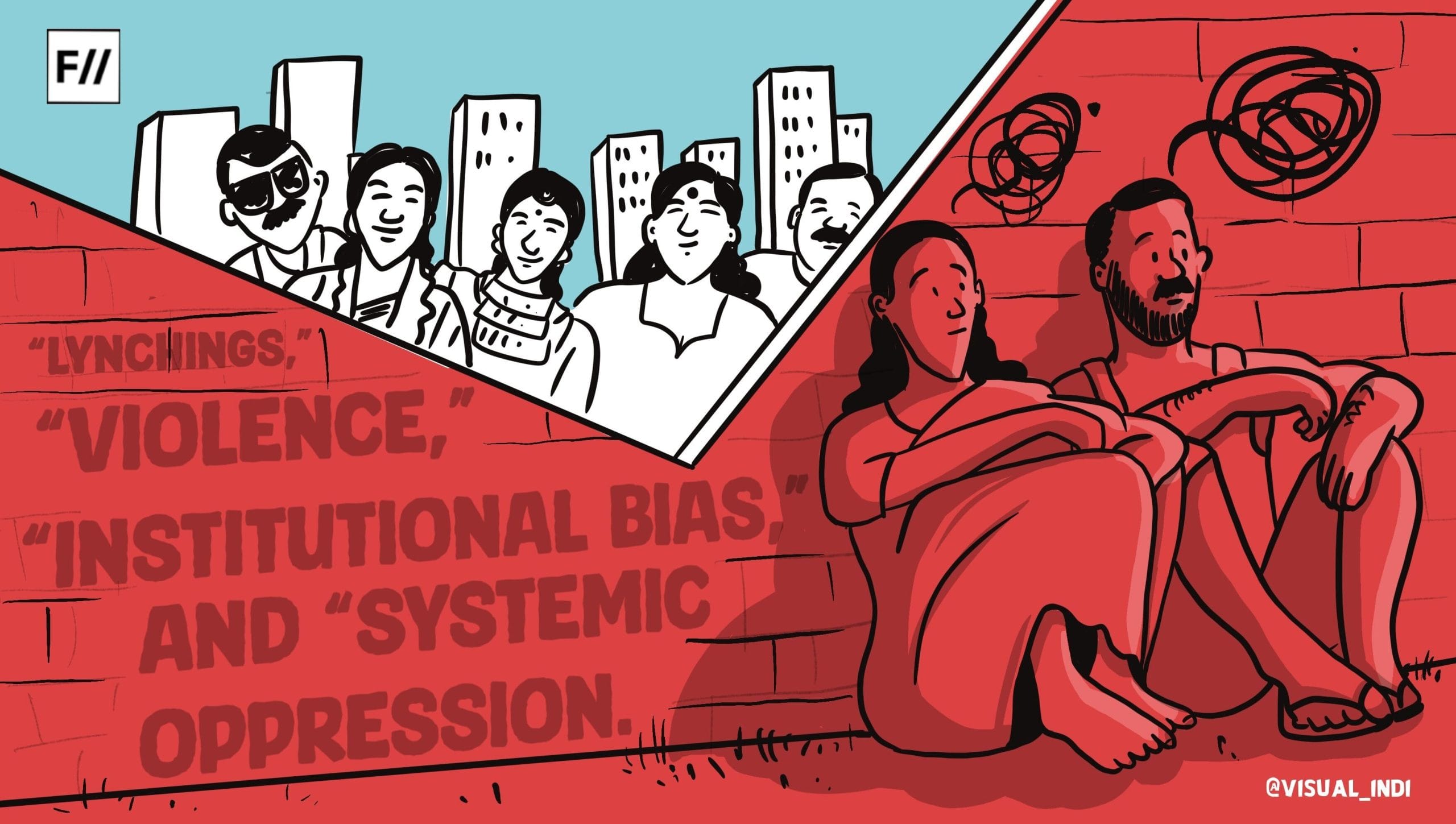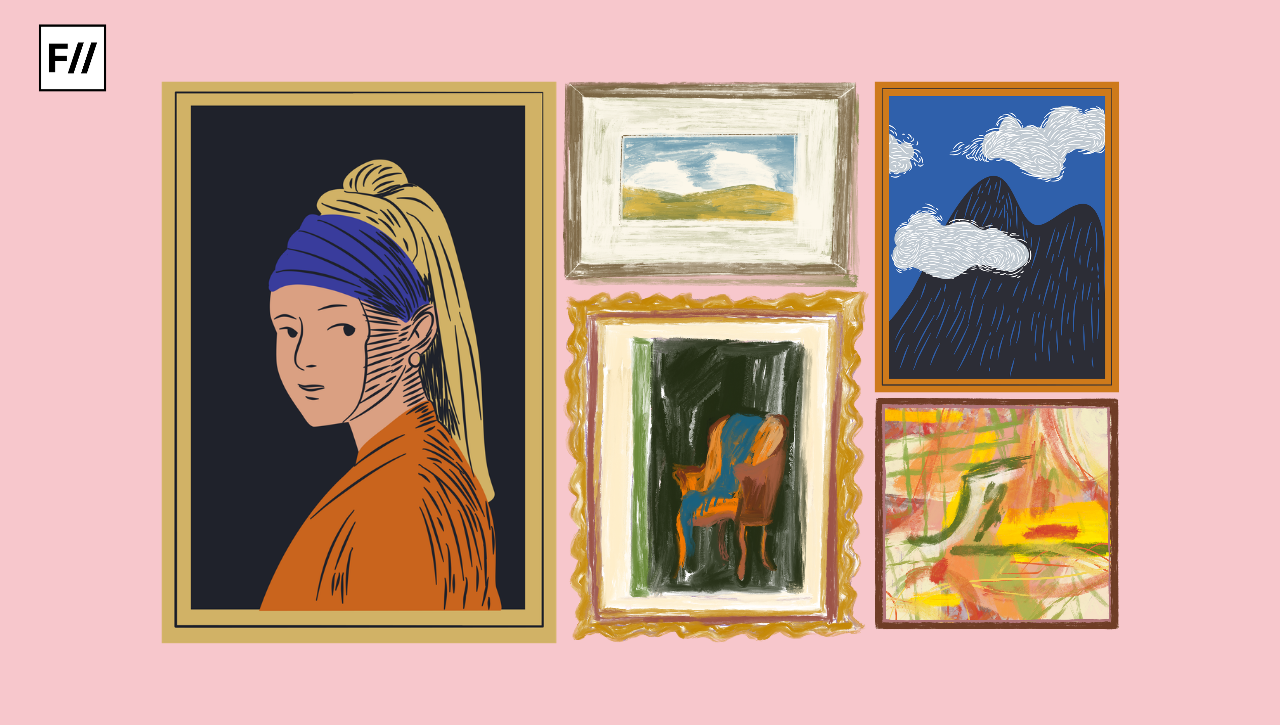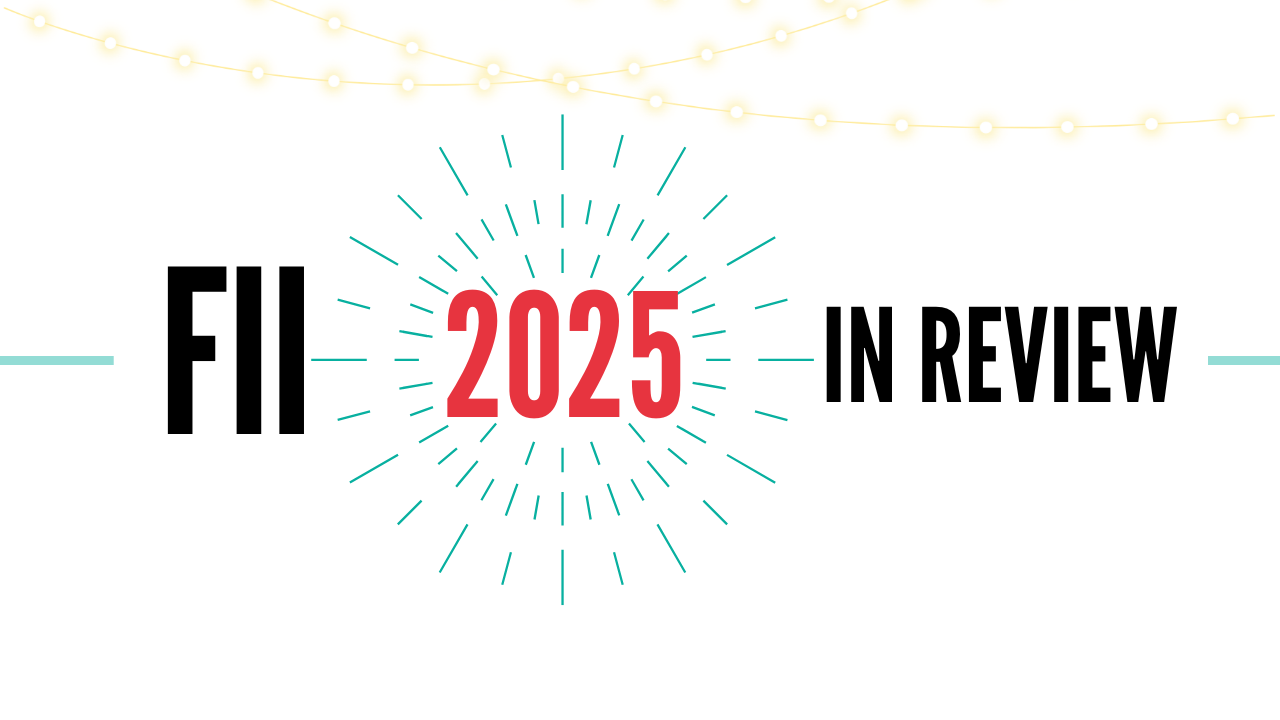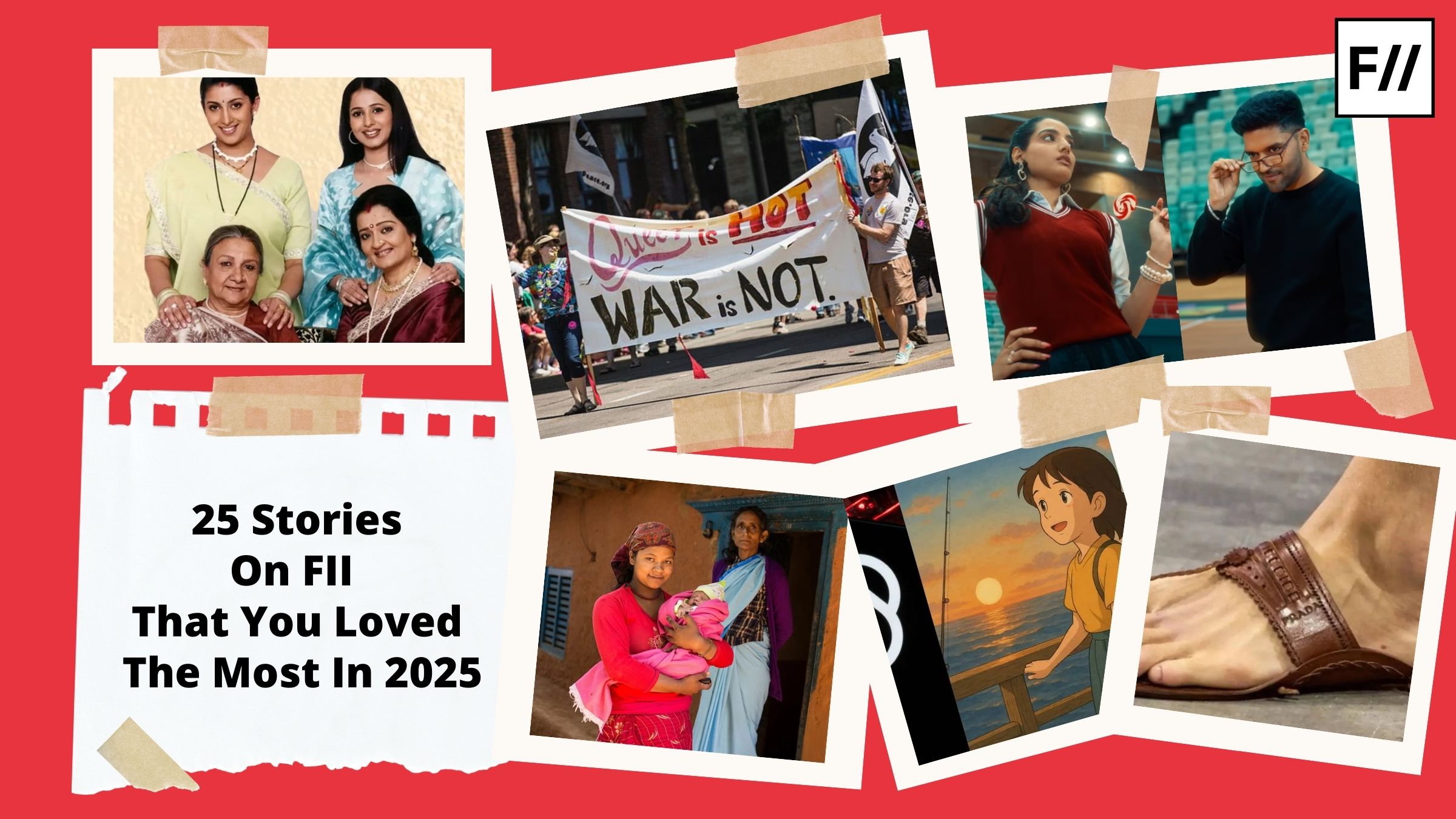Owing to one’s social and cultural position in society, mental health institutes a far greater impact and risk- playing with one’s vulnerabilities and marginalisation in society. People from caste minorities, grappling with everyday anxieties and agonies accompanying the caste system and caste-based oppression are bound to face more challenges mentally and psychologically as compared to a person from the upper caste. Dalit and Adivasi communities in India face marginalisation and systematic oppression on a daily basis where instances of lynchings, ostracisation, institutional discrimination and perpetual violence are everyday occurrences that can put an indelible mark on the mental and psychological landscape of those people along with the risks on physical violence.
According to a report by Asia Society, “People from lower castes tend to experience depression 40% more than the national average in India. Some students face difficulties in accessing care as well, as often, authority figures abuse their power. This has led to increased rates of depression, anxiety, and suicidal tendencies among students from marginalised communities.” The people from caste minorities are also often neglected by upper caste health care officials and mental health care providers propagating further disparities in access to mental health care among caste minorities. More than often there are very few psychologists and mental health care providers from Dalit, Bahujan and Adivasi communities who can better understand the caste-based livid experiences of people.
The same report by Asia Society mentions, “Medical institutions carry out malicious forms of bias: lowered caste persons face longer wait times, and callous doctors, who refuse to touch the patients, or even admit them to their clinics. Some have complained that they have tried to share their problems with psychologists, but the burden of guilt is placed on them, rather than the medical professional: and caste affects how mental health practitioners understand or relate to clients. The very understanding of psychology within India is dominated by “elite upper caste Hindu professionals,” making it inaccessible and, in some cases, downright hostile to marginalised communities.”
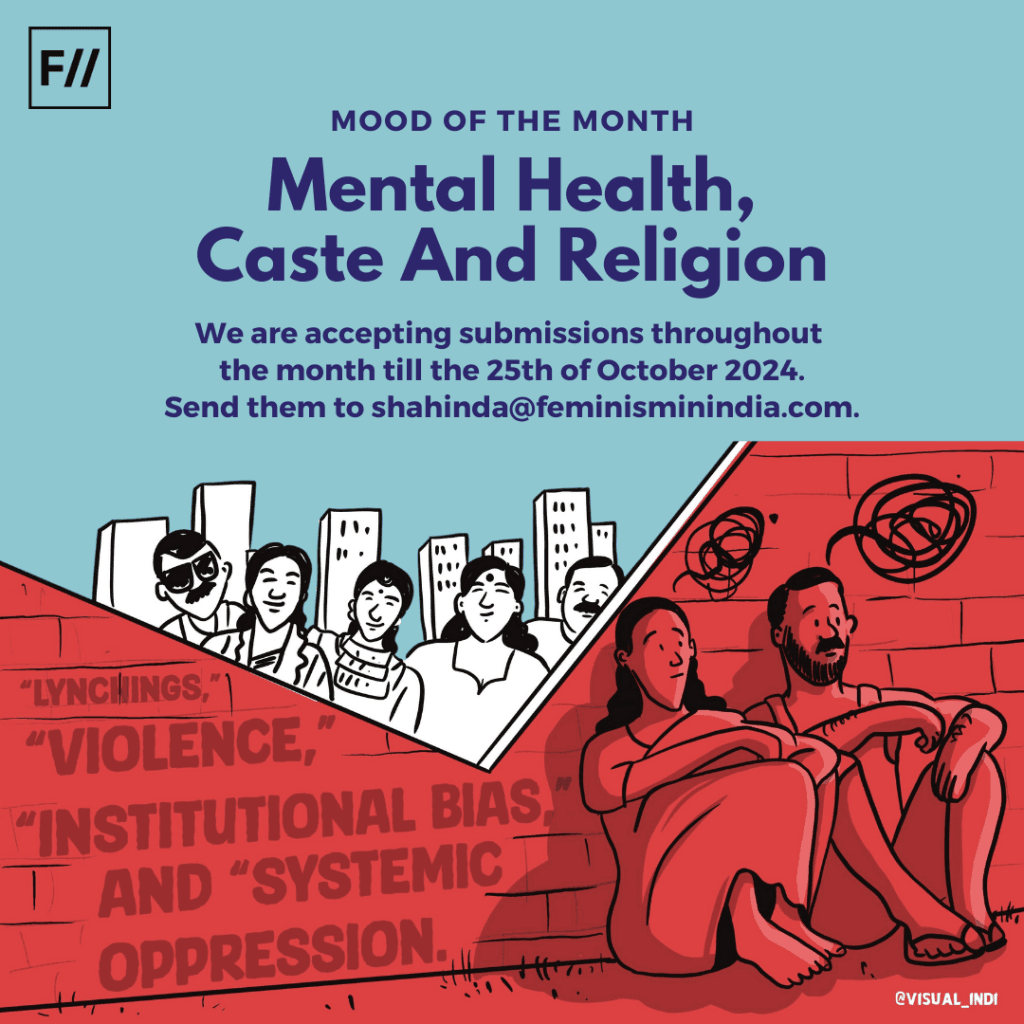
Further, a report by Vice News mentions, “Access to mental healthcare and investing in your wellbeing remain a distant dream for Dalit Bahujans in India. The problem lies in having fewer Bahujan people in the mental healthcare profession. The systemic oppression that Dalit Bahujans face in India often goes unacknowledged by upper-caste therapists who dominate the field, or it is reduced to one’s flaws.”
Indian Muslims are the biggest minority in the country, yet highly marginalised and oppressed. The intersection of religion with mental health is often negated but is an equally important issue to highlight. Due to an ongoing atmosphere of animosity, hate and discrimination propagated and perpetuated among Muslims in the country, higher levels of anxiety, depression and other mental health disorders are found among Muslims.
According to a report by The Wire, “Glorification of war, mocking of Palestinian suffering and calls for replicating Israel’s militant stance against Muslims in India have profoundly impacted the mental health of Indian Muslims, leaving them alienated and fearful of violence exacerbated by the normalisation of such content on social media platforms.”
According to a research paper published by the Journal Of Health Sciences “Muslim participants had a 2.48 times higher risk of developing anxiety as compared to Hindu participants.” This points out the root cause of such anxieties emanating from persistent and systematic oppression, the othering of Muslims and often subjected to targeted hate speech, trolling, lynching on suspicions of eating beef and many other discriminatory practices exhibited towards Muslims. The mainstream media and the political rhetoric above all have created an atmosphere of fear, anxiety, tensions among Muslims and a rift between Muslims and other religions in India. The socioeconomic constraints along with the subjection of oppression against Muslims have made it difficult for them to avail and access mental health care, leaving them to deal with such ailments themselves.

The intersection of caste, religion and mental health is an important social and healthcare issue that needs urgent attention and demands action through the parameters of healthcare as a human right and behavioural change in society. To create discourse and shed an urgent light on the intersection of caste, religion and mental health, FII is looking for submissions throughout the month until the 25th of October 2024.
Here are some of the themes that you may find helpful in putting together your thoughts:
- Mental Health and caste
- Mental Health and Religion
- Disparities in mental health care due to caste/religion or both
- Personal experiences of facing discrimination in mental health care
- Need for an inclusive approach towards mental health
- Hindutva abuse and mental health
- Citizenship, legitimacy and anxiety
- Caste trauma in educational institutions
- Identity-based mental health therapy
- Systemic negative affect and the need to de-pathologise mental health issues caused by social oppression
- Need for inclusive support groups and safe spaces
- Identity and generational trauma
This list is not exhaustive and you may feel free to write on topics within the theme that we may have missed out here. Please refer to our submission guidelines before you send us your entries. You may email your submissions to shahinda@feminisminindia.com.
We look forward to your drafts and hope you enjoy writing them!
About the author(s)
Feminism In India is an award-winning digital intersectional feminist media organisation to learn, educate and develop a feminist sensibility and unravel the F-word among the youth in India.
